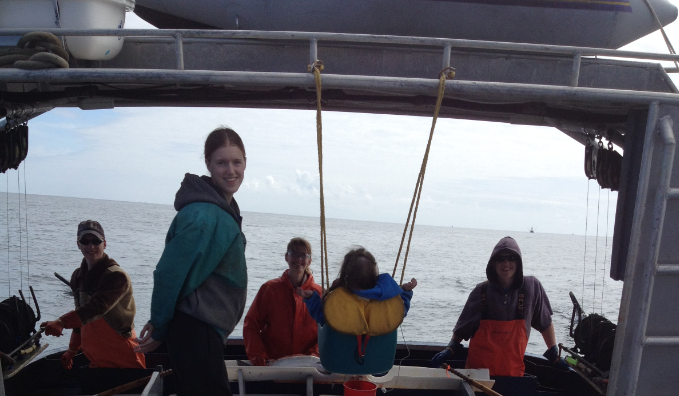
Brent Miller has been a Seafood Producers Cooperative (SPC) member since 1988. But not only has Brent been a co-op member; so have his wife Julie and their 4 children—Ben, 23; Janilee, 19; Bryce, 17; and Jenaya, 6. Fishing has been a way for their family to stay together.

What the Millers like about being part of Seafood Producers Cooperative is that it’s also like a big family. When the Millers call into the SPC office, they know the office staff. They know Patty, who takes care of their loan accounts. They know Kathi who manages their vessel insurance.

“What we like about SPC is the personal touch. That’s something we value in our family, too. Fishing has changed over the years. The politics, the people. But at SPC, we feel like we’re part of the family. We know the people. Even though the co-op has grown, it’s still Old School. There’s still a personal touch. Our children have benefited from SPC Scholarships. We take pride in the co-op and the fish we deliver to the co-op. Knowing that it’s going to good customers who value quality is important. We know SPC values that personal touch that we do.”
That personal touch starts with the fishermen, with the fish they catch and the personal care they give in cleaning and preparing the fish for delivery, but extends throughout the cooperative, and to our customers.

Part of the personal touch means helping members navigate their families’ educational needs. Brent’s oldest son Ben is applying to grad schools and has been receiving an SPC Scholarship, which helps fishermen’s children get an education. “He’s a real intellectual,” Brent says. “He is a history major and a poli-sci minor and he’s very interested in history. He’d like to be a professor at a smaller liberal arts college or a religious school. He likes looking at the connections in life—it’s not just history he’s interested in.”

Janilee is hoping to be an elementary school teacher and loves teaching children how to read and learning each child’s personal needs and how to help them succeed. Janilee’s job on the boat is to take care of her younger sister Jenaya, who has Down syndrome, but like her siblings, Janilee runs the fishing lines, cleans the fish, drives the boat, and helps to cook the meals. She knows sign language not only to communicate with those who are hard-of-hearing but as a memory aid for teaching.
Fishing has been the Miller family’s means of income over many years, but it’s also been part of why they’ve been able to stay together.
This family of 6 lives comfortably on their 48-foot boat, the North Fork, and Jenaya, 6, has been the beneficiary of having 3 built-in babysitters. “I think by living on the boat, our kids are more conscious of other people. They value relationships. They have to take care of each other. They can’t be selfish. They have to learn how to resolve their own conflicts. They’re each other’s best friends and they’re my best friends, too. Julie [my wife] too. She doesn’t just love fishing. She wants to go fishing to keep the family together,” Brent says.

Like most fishermen, Brent values freedom—the freedom to be your own boss, knowing that if you work hard, you’ll most likely be rewarded fairly. But for Brent, that freedom also means the ability to do something to stay together. In an age when so many families spend much of their time apart, he feels truly blessed to have raised his kids on the boat, where they learned about life together. “More than for any other reason, the reason we do this is to stay together. It’s for family. It’s about quality conversation and quality time.”
The family spends about 7 months a year around Sitka, Alaska fishing and the other 5 months of the year in Davenport, Washington on Julie’s parents’ wheat farm.
The Millers have made sacrifices to stay together. They’ve had to make adjustments. They’ve had to learn how to be patient. “We’re doing whatever we can to take care of each other. Some years, it’s one week that will take you over the expense range and you break even. Sometimes it isn’t until September. You can’t bank on anything in fishing. You can’t expect. At the end of the day, though, the most important thing is family and staying together and enjoying quality time together. We don’t run 15 hours just to find fish. On slow days, we might drop a kayak and just spend the afternoon paddling. Just to be together. It might mean less fish, but that time together is important. We value the opportunity to connect. Fortune is in other things, not in money.”

